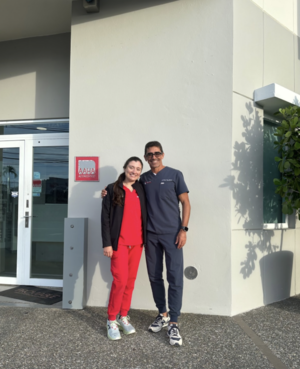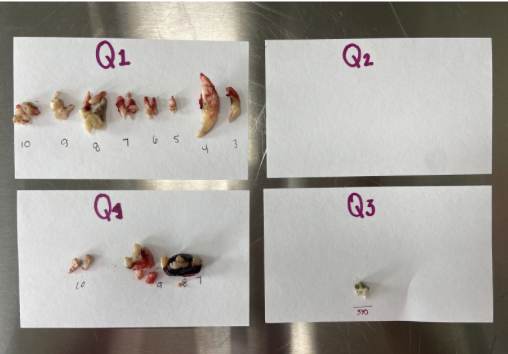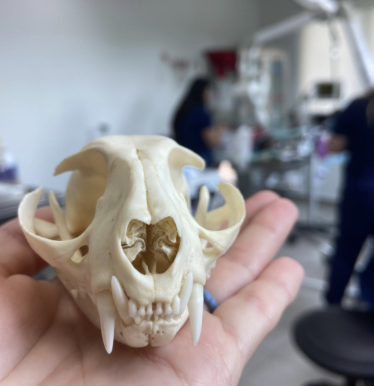STUDENT EXPERIENCE: SOUTH AFRICA
 Tuesday, February 13, 2024 at 12:00PM
Tuesday, February 13, 2024 at 12:00PM Submitted by J’Haira Rhodes, Ross University
"My time at Kwantu Private Game Reserve"
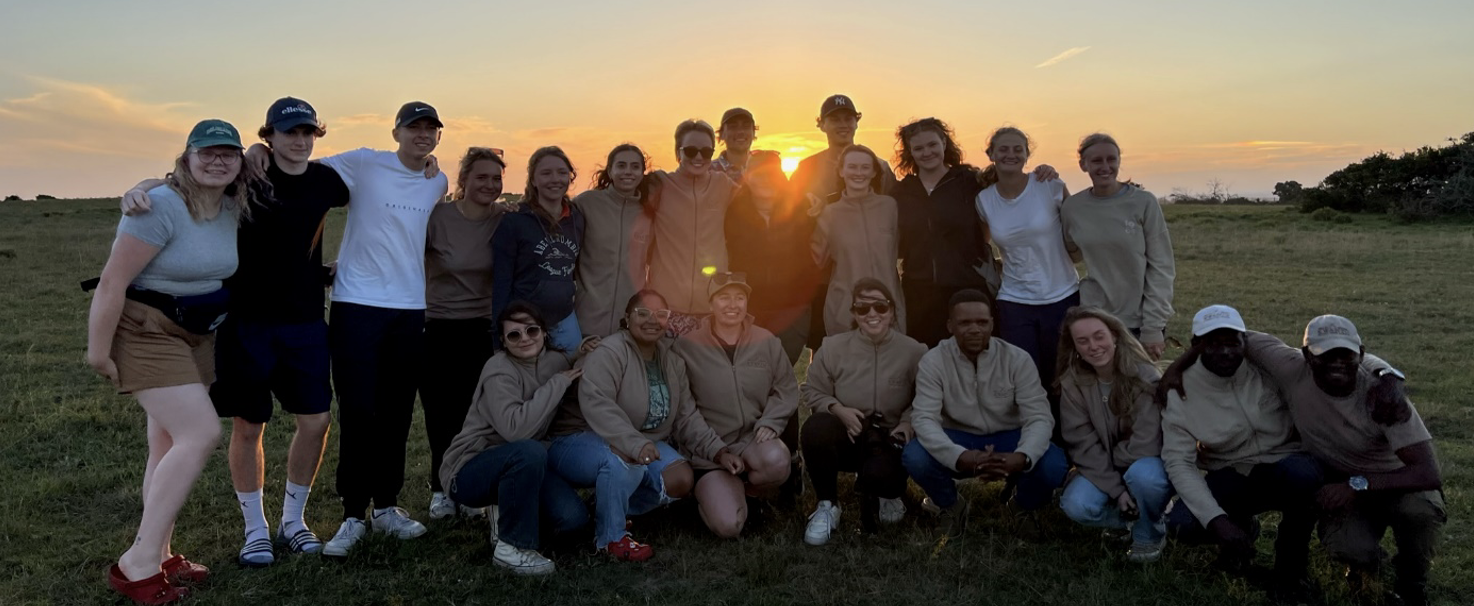
In October of 2023, I traveled to South Africa for a one-month veterinary externship at Kwantu Private Game Reserve to fulfil my requirements for my clinical year. I worked closely with a South African vet by the name of Dr. Thys, and I was the only student completing the veterinary externship. My goal of this externship was to gain hands on experience in the conservation, health, and management of native South African species.
During my first few days on the game reserve, I had an introductory game drive from the expert game rangers. While on this drive, I learned about the differentiating physical characteristics and habits of the animals on the reserve such as the lions, rhinos, hippos, zebras, and various antelope. I was informed of conservation efforts on the reserve, native flora, and fauna, how to track animals using their feces and prints, as well as specific anti-poaching efforts for the rhinos. Following this, I met with the Veterinarian and received hands on training in the anatomy of the Dan- inject dart gun, the various darts used for different scenarios, and the drugs used for chemical immobilization. We discussed the importance of safety with these drugs and the regulations that surround them in the country.
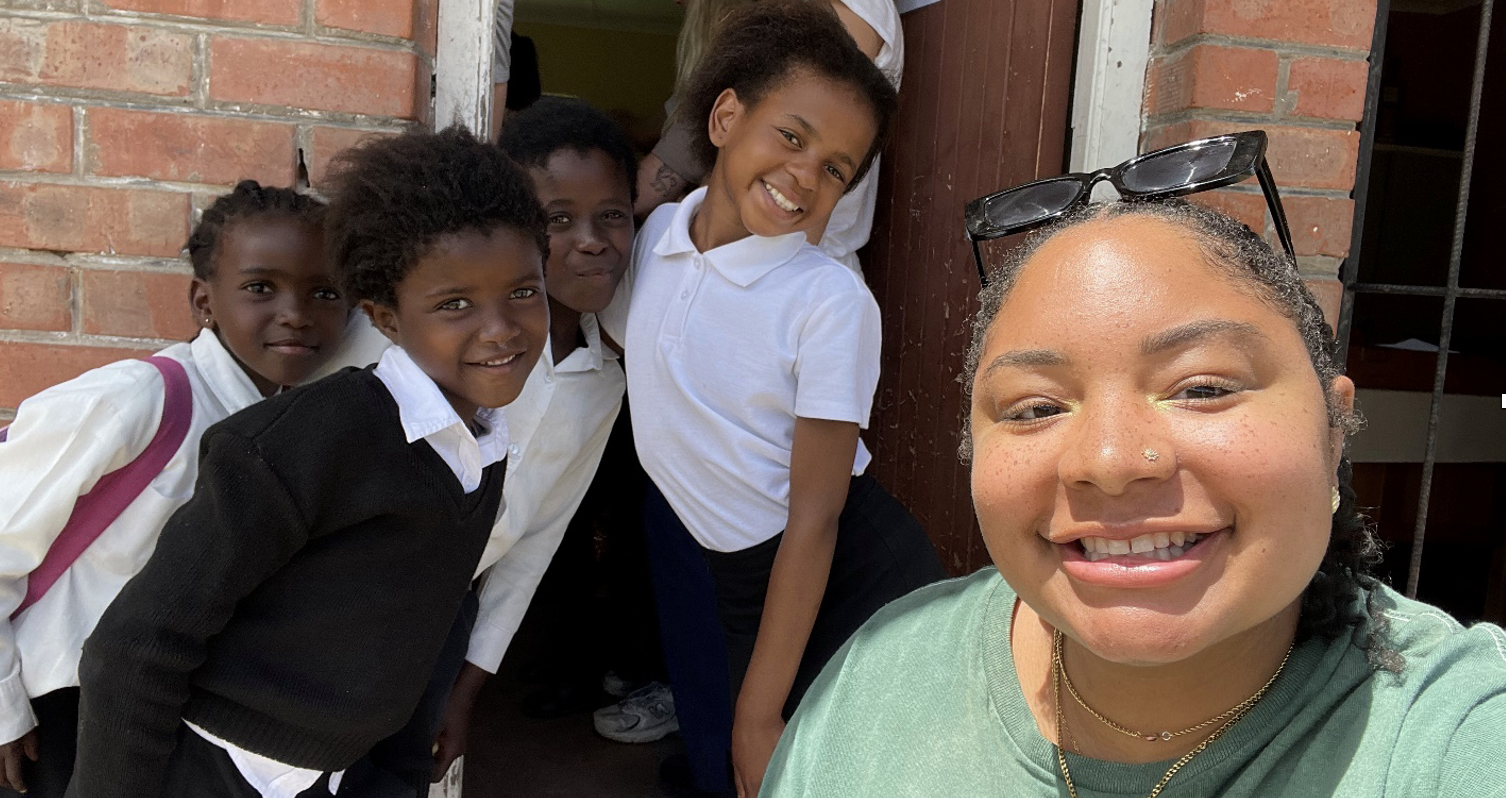
Lastly, during my time at Kwantu I was also able to participate in activities with the volunteers to indirectly help the animals on the reserve and the community. A few of these activities included road maintenance, game counting, fence patrol and clearing, as well as removing alien vegetation and planting natural flora and fauna for the grazing species. Another activity that had a large impact on my time was going to the local school and serving the kids lunch that the chef from Kwantu prepared as well as snacks and fruit that we brought them. Every week it brought me nothing but joy to see the smile on the kids’ faces, while there, we would also play games with them such as soccer and tag.
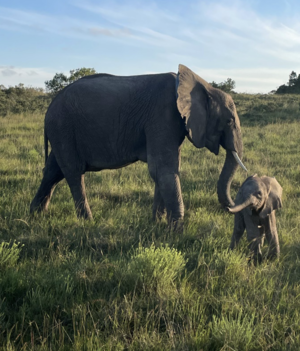 My time at Kwantu Private Game reserve will always have a special place in my heart. I was able to gain hands on experience in the veterinary health and management of a multitude of species while also learning the importance of indirect care and conservation efforts. Helping the local community and understanding the impact people have on the well-being of the native animals of South Africa is what made was trip unforgettable.
My time at Kwantu Private Game reserve will always have a special place in my heart. I was able to gain hands on experience in the veterinary health and management of a multitude of species while also learning the importance of indirect care and conservation efforts. Helping the local community and understanding the impact people have on the well-being of the native animals of South Africa is what made was trip unforgettable.

